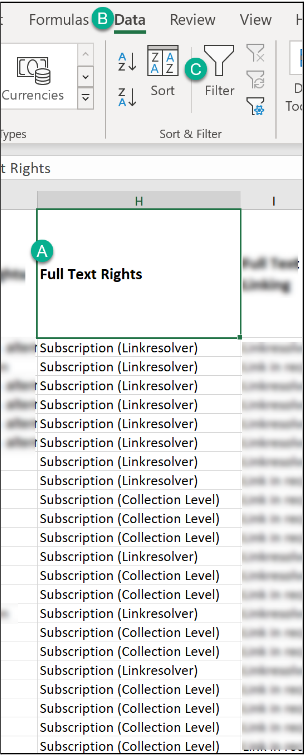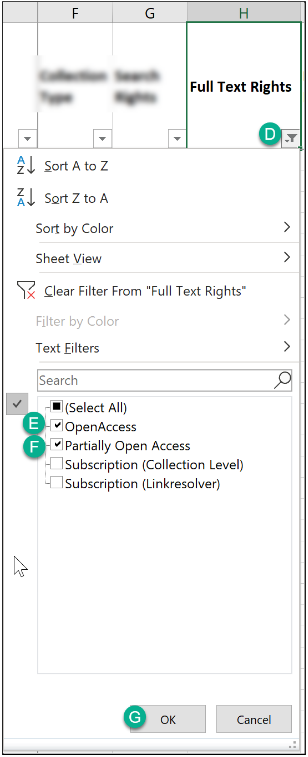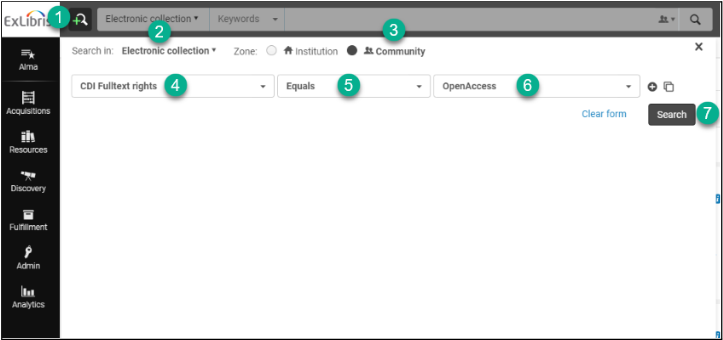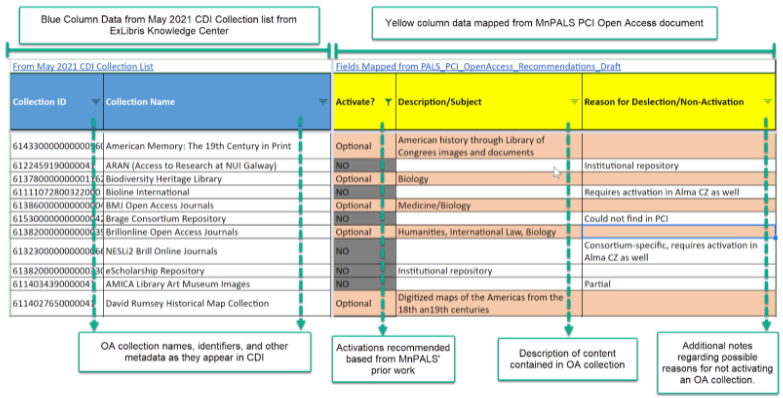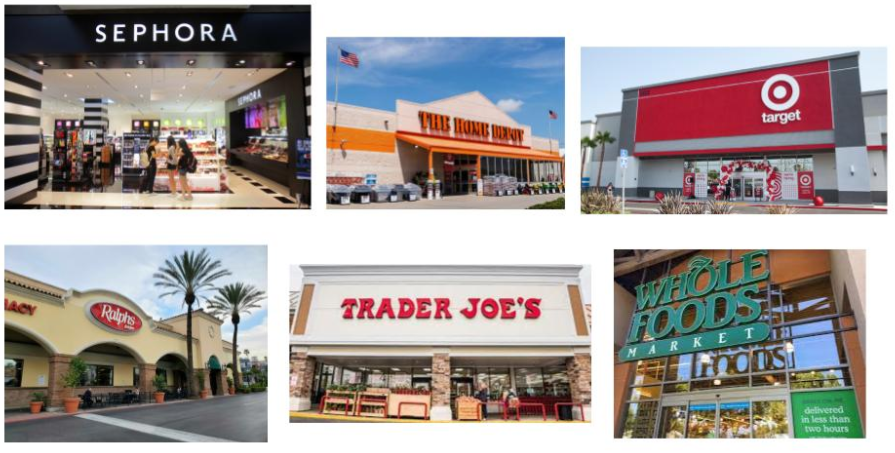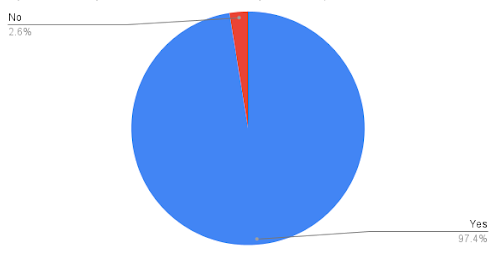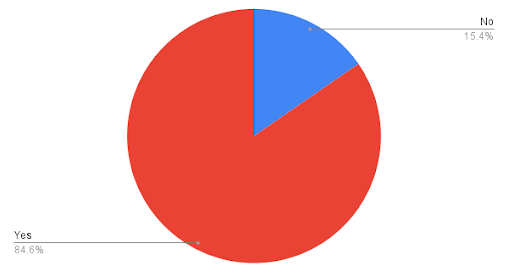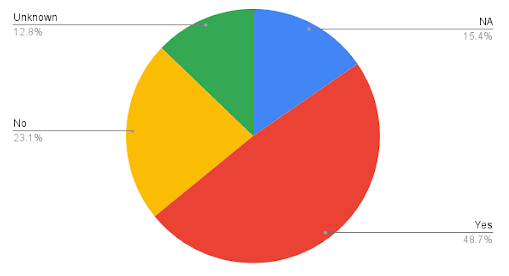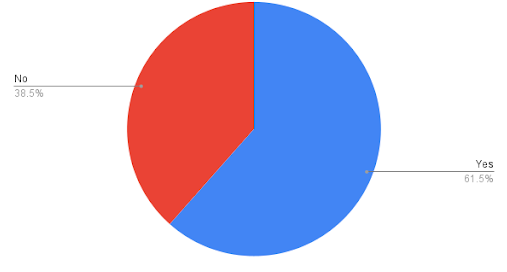By Stephanie M. Roach, San Mateo County Community College District
Correction 12/8/2021: A prior version of the article stated that the Library of Congress' Tentative Monthly List 11b was published on November 12, 2021, and included a call to action in which stakeholders send feedback to LC about the list. However, the Tentative Monthly List 11b and the Approved Monthly List 11b were both published on November 12, 2021. The article has been updated to include this detail, additional information clarifying Library of Congress' process for feedback on subject heading updates that is detailed on their website, and a modification to the call to action initially proposed in the article. LC’s usual review process allows feedback on tentative lists to be sent to listcomments@loc.gov. Thank you to Violet Fox for pointing out the error.
Introduction
The words we use to label and describe people matter. Labels can empower, labels can support, and labels can cause harm. Libraries share systems, standards, and vocabularies. Our shared vocabularies, and the systems in which they are used, can support or harm as our community of users searches for and discovers library resources. When the vocabulary includes harmful terminology, particularly terminology that describes groups of people, users of library search systems are impacted, and whether intentional or unintentional, a message about the library's values is communicated to our users. When users are members of the group being labeled by the terminology, the impact of encountering the terminology in the library search system is personal. We must scrutinize terminology found in our common vocabularies, such as the Library of Congress Subject Headings, identify harmful labels, and take action to reduce or eliminate harm by making changes in our library systems.
Most academic libraries in the United States, including those at California community colleges, use Library of Congress Subject Headings (LCSH) as the primary controlled vocabulary for describing the topics or subjects each library resource is about. It is incredibly beneficial to have a shared vocabulary in common across academic and research libraries. However, LCSH does not always reflect the values of diversity, equity, and inclusion held by individual libraries or consortia, and too often includes terminology that is dehumanizing, xenophobic, racist, heteronormative, or otherwise harmful or problematic for our students and other library users.
Since 2014, there have been efforts to get LC to update LCSH terminology related to noncitizens and undocumented immigrants. These efforts have been politicized, and up until last month, LC has elected not to update the vocabulary, despite announcing updates in 2016. Between then and now, individual libraries and consortia, including the consortium of 110 California community colleges that share a library services platform (LSP), have responded by making changes to that terminology in their systems locally.
On November 12, 2021, the Library of Congress (LC) simultaneously released Tentative Monthly List 11b and Approved Monthly List 11b, a list of Library of Congress Subject Headings (LCSH) related to noncitizens and undocumented immigrants that has been updated. This article examines that list, provides context for and critical response to the approved changes, as well as a description of what the consortium of California community colleges sharing an LSP has already done with this terminology and what it and others could do moving forward. Finally, although LC has already approved the subject heading changes, the article closes with a call to action, including a request that library workers and other higher education partners and stakeholders work locally to address issues with LC’s approved changes.
LC's Process, the Tentative List, and the Critical Response
The Library of Congress ultimately decides which terminology is included in its official vocabulary through a proposal and review process that includes a comment and feedback period open to library workers, lawmakers, and the general public. Once terminology is approved and implemented by LC, and then in other shared systems such as OCLC WorldCat, the terminology will be updated in individual library catalog records using LCSH.
Current LCSH terminology describing undocumented immigrants (“Illegal aliens”) and noncitizens (“Aliens”) is deeply problematic. “Illegal aliens” is routinely described as dehumanizing, insensitive, polarizing, outdated, and as a racial slur by immigrants, immigrant advocates, legal scholars, linguists, journalists, library professional associations, library workers, and others. The word “Illegal” is particularly problematic in this context and is noted generally to be dehumanizing, racially charged, coded, and inaccurate (Race Forward, Drop the I-Word campaign). In March 2016, LC noted in initial plans to update the terminology that “Aliens” is confusing and “Illegal aliens” is pejorative.
Library of Congress Tentative Monthly List 11b and Approved Monthly List 11b put forward the following basic changes to terminology:
- Change "Aliens" to "Noncitizens"
- Create a new subject heading: "Illegal immigration"
- Change "Illegal aliens" to "Noncitizens" AND "Illegal immigration"
The response to the tentative and approved lists has been mixed, as pointed out by Kelly Jensen and Burkely Hermann. Some library workers, library professional associations, publishers, and vendors1 have welcomed the change, while at the same time, many in the critical cataloging community and some Republican lawmakers have objected to parts of it. Critical cataloging advocates on Twitter responded quickly to the news about terminology presented by LC in Tentative Monthly List 11b. See tweets on November 12, 2021 (the day the list was published) by Violet Fox, Tina Gross, Stephanie Roach, and others. Additionally, many did not initially realize the approved list was published simultaneously, which caused confusion among library workers when changes began to appear in library records.2
Other critics, particularly those on the political right, refer to a need for alignment with legal terminology, which is often outdated itself. However, there is no requirement that LCSH terms be the same as legal terms. In the recent past, some have centered policy over people and argue that framing of policy issues is more important to public perception of immigration policy than the framing of immigration status is, which might lead one to conclude when using this policy lens that individual labels do not matter much. However, the people being labeled according to their immigration status tell us that how they are labeled matters, and considering agreement by many that the terminology is dehumanizing, we need to ask ourselves why would we want to keep using it? What purpose and ends does it serve? Some justify continued use of the terminology because there is a long historical and legal tradition for using “Aliens.” However, formal and informal research demonstrates that “Illegal aliens” appears to be falling out of common usage, despite increases in use of dehumanizing language in news outlets since 2014. Language changes over time and subject headings change over time as part of LC’s regular business process. This argument based on longstanding tradition is problematic because the tradition itself is problematic.
In an April 2021 CCL Outlook article, Roach, Angela Boyd, Megan Kinney, Mario Macías, and Glenn Tozier argued that “we must thread a network of accountability to inspect and inclusively collaborate against racist, inequitable, dehumanizing, and oppressive dispositions in our systems. Ultimately, our goal is to create learning environments for our students driven by anti-racist values and cultural competencies." We do not create safe learning environments for our students when dehumanizing language is present in our library vocabularies. To passively accept inherently problematic vocabularies is to perpetuate harm by upholding xenophobic and white supremacist culture and structural oppression. Educators--all workers in higher education--have an obligation to avoid “organizational inertia” and hold ourselves accountable as change makers--we must practice empathy and genuine care in order to best support students.3 To make sure we are creating safe learning environments in this particular case, we must scrutinize LC’s list, identify the ways in which it perpetuates harm, and be prepared to act locally and transparently to effect change by transforming the terminology approved by LC.
In this particular moment, with LC’s approved list now live in library systems across the nation and world, libraries and consortia must be prepared to act locally to assure that subject headings in their library systems meet the needs of their users. While a comment period is not available for this particular list, lessons can be learned as LCSH is changed in future updates, and an argument can be made for sending comments anyhow. There has been renewed interest in and confusion regarding LC’s process for updating subject headings. Questions of LC’s commitment to transparency and meaningful engagement with the public, lawmakers, and library professionals in the broader community remain open.
Terminology Transformation Options
Approved LCSH or other terminology may not meet the needs of individual libraries or consortia. Fortunately, terminology transformations can be implemented locally that better fit the needs of their users. Terminology transformations in library systems are similar in concept to “find and replace” functions found in the common word processing software. This type of transformation work can typically be handled through automated processes and/or by specialty library service vendors. Once initial technical work is completed, and automation is put in place, the labor to maintain changes to vocabulary is minimal. It is best practice to have a monitor and review process in place for quality assurance--particularly as system requirements shift or additional vocabulary updates are made over time.
With this particular set of LCSH terminology related to undocumented immigrants and noncitizens, many in the library community have already put processes in place to update current terminology locally. Adjustments to existing processes will be required once LC makes any update of their own. For example, the consortium of 110 California community colleges sharing an LSP completed a “Change the Subject” project in September 2021. “Aliens” has been transformed to “Noncitizens”, and “Illegal aliens” has been transformed to “Undocumented immigrants” in our shared system. With the approval of LC's list, the transformations we have made locally in our system for noncitizens will hold--only a little maintenance will be needed, and the impact on our library users will be minimal.
The same is not true for the transformations we have made locally in our system where “Illegal aliens” is changed to “Undocumented immigrants.” With the approval of LC's list, these transformations will no longer hold. Instead of “Undocumented immigrants”, we see “Illegal immigration” AND “Noncitizens.” In comparing the two, the new terms of “Illegal immigration” AND “Noncitizens” are not in the same spirit as “Undocumented immigrants.” They do not have the same meaning, which is particularly pronounced when derivative terms such as “Children of undocumented immigrants” are considered, and which would change to “Children of noncitizens” AND “Illegal immigration” (a book about children of undocumented immigrants may have nothing to do with “Illegal immigration”, yet both terms would be used).
More alarming, is creating the new term “Illegal immigration” for use when describing undocumented people. First, the word “Illegal” is still in use--and use of this word has clearly been rejected by the undocumented community. Second, the recommendation of the Subject Analysis Committee and preference of those who are undocumented to use the term “Undocumented immigrants” has not been taken on board by LC. Third, eliminating and rejecting specific terminology such as, “undocumented immigrants” and replacing it with a broader term “Noncitizens” and a possibly related term “Illegal immigration” is deeply problematic. It begs the question of whether and why LC is avoiding this terminology and what the effects of using a broader term are. Roach stated that the use of a broader term to describe this group of people can be perceived as “a kind of forced assimilation within the context of the subject schema that devalues the identity and importance of undocumented peoples. [T]his is a clear example of systemic [and] structural racism, particularly when we consider the fraught politics related to this subject heading change and coded rhetorical use of the term "illegal aliens" over the last several years.”4
The intent behind changes made by our LSP in September, reflected in the term “Undocumented immigrants,” is not captured by the terminology in LC’s list. We have an obligation to monitor LCSH changes and re-examine the impact on our students and other library users, particularly those described by the language. Discussions about LCSH terminology found on the tentative and approved lists are planned within the LSP Cataloging Work Group. The LSP Governance Committee and its Diversity, Equity, and Inclusion (DEI) Task Force also included the topic in recent meeting discussions.
Call to Action
Most importantly, we must act. Examining this set of subject headings on the tentative and approved lists is only a starting place. More work is to be done, and many places where LCSH and other vocabularies, or the systems and algorithms that display subjects and topics in our library catalogs and discovery systems, let us down. Learning what our options are for locally making change and then following through on making change is critical so that we begin to realize learning environments that reduce and eliminate harm as we better support our students. As Roach et al. wrote, “we are responsible for establishing mechanisms to address such negligence; we must continually monitor, identify problems, and proactively make change within our library systems. Every time we delay this work, we uphold structural oppression and allow systemic harm to continue."
Actions you can take:
- Examine LC's Approved Monthly List 11b (11/12/2021) with a critical eye. The usual LC process allows for feedback on tentative lists to be sent until the date shown on the published list by emailing listcomments@loc.gov. You may elect to send comments on list Tentative Monthly List 11b even though the usual comment period appears to have been unavailable for this list.
- Monitor publication of future tentative lists on the Tentative Lists webpage on Classification Web.
- Monitor publication of the summary of decisions to see explanations.
- Examine your library catalog to see how it conforms or differs from LCSH terminology related to the approved list, and consider how your library users who are described by the terminology are impacted.
- Discuss your findings with your library team, and ask what actions are needed.
- Listen to those who are most impacted by systemic harm, and create space for their voices to be heard.
- If your library is a member of a larger institution or consortium, learn about how organizational change is effected so that you are better able to advocate for change within that organizational structure.
- Examine local policy and procedure at your library, and put a process in place for identifying and making changes to harmful terminology identified by your library team and stakeholders. Monitor the effectiveness of processes, and make changes as needed.
- Look to the work of others who are doing this work for examples, templates, professional development, and support.
- Look inwards and interrogate your practice, identify blind spots, gaps, and areas for growth based on your identity, situational context, and/or privilege.
- Practice self-care so that this work can be sustained.
References
1. Weitz, Jay. Jay Weitz to American Library Association (ALA) Connect - Social Responsibilities Round Table mailing list, "LCSH 'Aliens' Change to 'Noncitizens' in WorldCat," November 23, 2021. Accessed November 30, 2021. (Login to ALA Connect required)
2. Rubel, Dejah T., Mark K. Ehlert, Shawn King, Kathleen A. McElhinney, and Stephanie Morna Roach. Dejah T. Rubel, Mark K. Ehlert, Shawn King, Kathleen A. McElhinney, and Stephanie Morna Roach to ALMA mailing list, "Alma updates Illegal aliens headings before LC?," December 3-8, 2021. Accessed December 8, 2021. (Login to ALMA-L required)
3. Taylor-Mendoza, Jennifer. "Embracing the Obligation: Social Consciousness and Epistemological Disruption." In Minding the Obligation Gap in Community Colleges and Beyond: Theory and Practice in Achieving Educational Equity, edited by Jeremiah J. Sims, Lasana O. Hotep, Jennifer Taylor-Mendoza, Jeramy Wallace, and Tabitha Conaway, 35-59. Educational Equity in Community Colleges 1. New York: Peter Lang, 2020.
↩
4. Roach, Stephanie Morna. "Re: [EXTERNAL]Re: Change the Subject IZ Implementation." E-mail message to Caroline Sinay Gudiel, Michelle Ohnstad, Pawel Szponar, and Evelyn Lord. November 16, 2021.
↩

